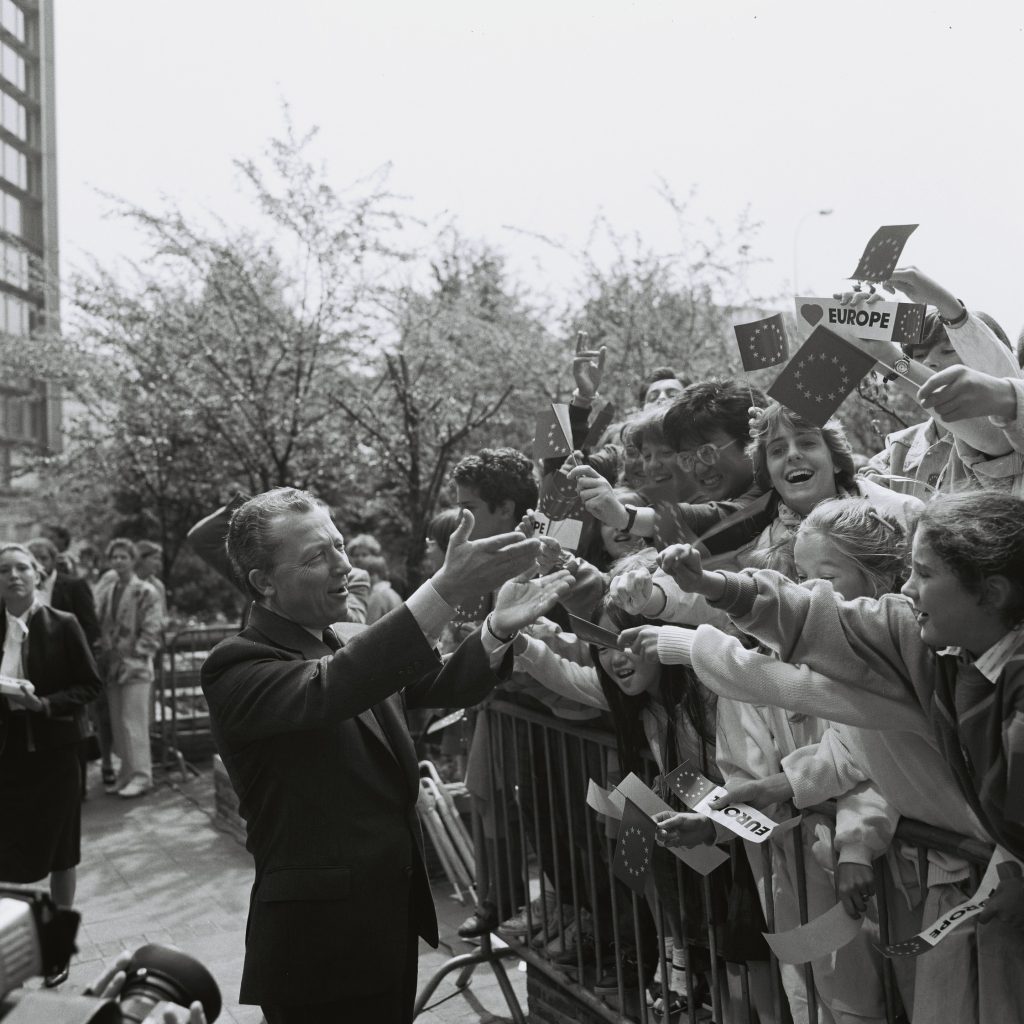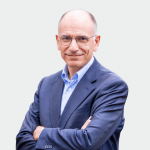Speech at the European tribute ceremony for Jacques Delors
Speech delivered on 31 January 2024 in Brussels

Afternoons at 4 o’clock, Rue Saint Jacques. It’s a little habit that I’ve had since I arrived in Paris to head up the Jacques Delors Institute. A habit full of happiness and learning. A happy habit.
Jacques Delors’ ability to listen always fascinated me. It was at odds with what we see today. He never felt the need to impose his point of view or his narrative. On the contrary, he showed respect and interest in his interlocutor without renouncing his own clear, lucid and, above all, simple message. And we know how much more difficult, but also how much more useful, it is to be simple rather than complex. He was curious about the present and eager to see a better future.
But he also liked to talk about the past and was always ready to answer questions. He never sounded like a nostalgic veteran listening to himself talk, like the time he told me about the night-time negotiations that led him to exchange short-term tax concessions with Margaret Thatcher, which gave him the green light for the Erasmus project, a project of immense intuition. A project that changed the face of Europe and the lives of millions of European families, giving birth to hundreds of thousands of young Europeans.
His attention to Erasmus was attention to young people. The joy he felt when he regularly asked for news about the progress of the student youth project (the Notre Europe Academy) launched by the Institute, which in eight years has trained more than five hundred young Europeans. He will smile down on us knowing that, in his name, we will launch the first edition of the ‘Jacques Delors European Agora’ in the first week of July 2024 with young people from all over Europe. And all this in a city he loved and which loved him, Lisbon.
Cities and the Europe of territories were subjects that Jacques Delors held dear to his heart for a Europe of citizens. He placed citizens at the centre of the Community project. He wanted the Jacques Delors Institute to have civic engagement among its founding values. Thus, he followed with passion the latest developments in citizen Europe around the Conference on the Future of Europe.
His love for Europe was obviously not unconditional. He was demanding. He knew how to criticise and ask for more when necessary. When Europe was on the brink of collapse due to Covid at the end of March 2020, with medicine shortages and closed national borders, he decided to speak out, and his words carried weight. His call for European solidarity was heard.
He was a keen observer of people and the depths of the human soul. He had strong and firm opinions. He knew how to trust and delegate. Above all, he knew how to gauge people. He knew how to get you to talk in a way that only a great connoisseur of the human soul, dare I say, a great confessor, knows how to do.
He followed the evolution of his creation, the European Union, with passion. Although he believed that a society without memory had no future, he was neither nostalgic nor backward-looking. On the contrary, he saw the changes in the world and wanted a Europe that would change and rise to new challenges, particularly on environmental and technological issues in a world whose population had doubled in thirty years. That is exactly what he talked to me about during our last meeting at 4 p.m. on Rue Saint Jacques. When I asked him for advice on the report on the future of the internal market, he said to me, “You have to change the compass, you have to rearrange the cardinal points. Forty years ago, we had to start from the inside and focus on relations between France and Germany, but now we have to look outwards and consider how the EU, as a united entity, positions itself in relation to the world.”
And then he added, ‘Remember that when we launched the single market – “we” not “I”, another nuance that spoke volumes about the inner strength of a person who did not like the word “I” – it was a success because, at the same time, we launched the cohesion policy. Without cohesion, there is no single market.’
Hence his focus on Greater Europe; his ten years were those of the Europe of Twelve, but his vision went far beyond that. How many times did he say to me about the Institute’s activities, “We must move beyond the old Twelve. Go beyond that’. He referred in particular to Poland and the hope of one day having a Jacques Delors Institute in Warsaw. Hence also the Institute’s new addition, the Greater Europe Centre.
The European and global reaction to the news of his death struck us all. It shows that Europe has a soul. It shows that Europe is also, and above all, about feelings and passions. It shows that Jacques Delors’s fight must continue in the spirit of “we” rather than “I”, with citizens, for the future of young people.




